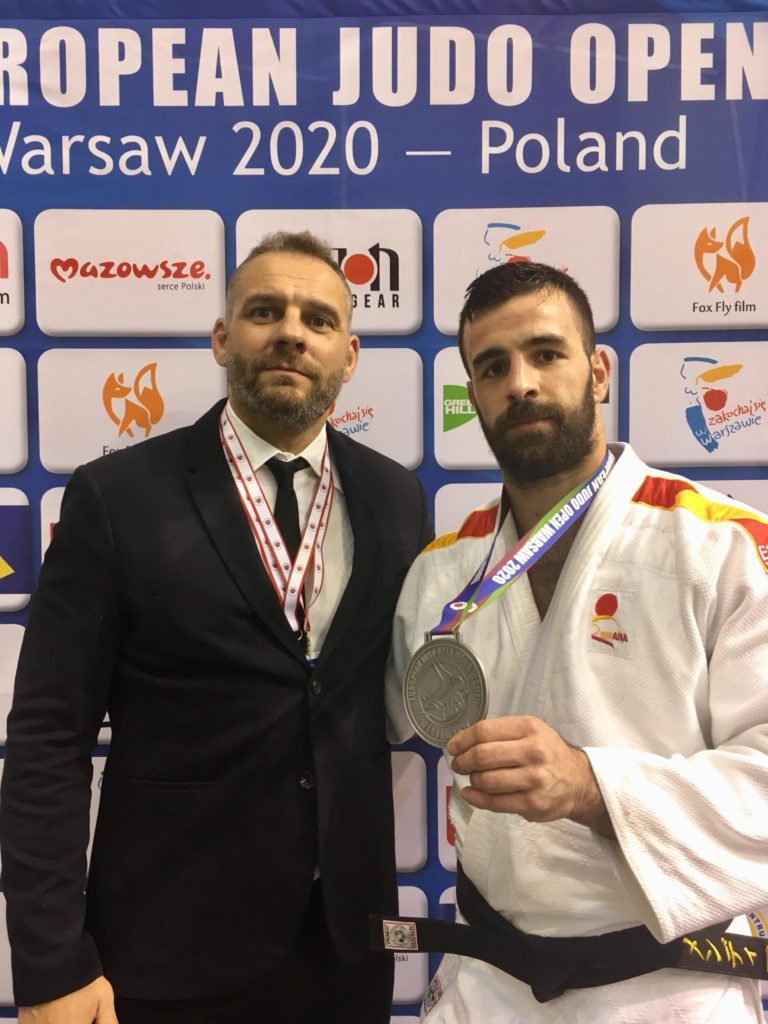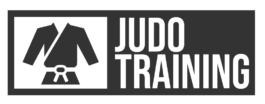Interview with Hector Nacimiento
JUDOTRAINING interview Hector Nacimiento, spanish judo coach who was the Head Coach of Chile Olympic Team in Rio 2016.
Can you explain your background as a coach? When did you start, and did you want to be the head coach of an Olympic team since you are now a coach in a high-performance training center in Madrid?
“I studied Sports Sciences and a judo athlete and played a decisive role in shaping my future career path. I was working as a judo coach in schools to have some budget when I was an athlete. I started being more serious in coaching judo when I helped my brother and that’s the time that I discover my passion to be a judo coach in high performance.
When I finished my career as an athlete, Coach Young Lee contacted me to join the Spanish cadet team in the Spanish Judo Federation, but as a strength and conditioning coach. At that moment is when I started to work with national teams. I was with the cadet team until 2012, and in that year, I decided to quite the job due to personal reasons, though I always have a good relationship with all the staff. Due to my friendship with Serafin Argüete and knowing how my goal is to be a head coach in a national team, he contacted me and told me that Chile Judo Federation is looking for head coach and that I have a good profile for that post.
Last October 2012 I went to Chile for a meeting with coaches and athletes, and I show them my Project for 4 years. Some other foreigner’s coach to this post too. After I visit Chile, the director of Federation, headed by president D. Aquiles Gómez, told me that I am for the post of head coach. After that, I give up all and new projects for the next 4 years.
When the Project finished, I came back to Spain and started to train my brother again. And in 2018 Spanish Judo Federation called me again to work as a strength and conditioning coach and assistant coach in the High-Performance Training Center of Madrid.”
What is your coaching style?
“Firstly, I am a coach who likes to interrelate the physical training with technical and technical training, because I don’t understand one without the other, it means both periodization’s must be coordinated. If I do physical tests to know-how is the performance, in the technical and tactical aspects too, with different control tests.
I like to measure the training loads in all training sessions, physical and technique/tactic, and prepare at least, one week in advance. I try to improvise as little as possible.
I like to listen to my athletes and let them discuss the training process in all aspects, especially in technical and tactical aspects.
I don’t support the idea to teach what I did when I was a judo athlete, because I think I must adapt to my judo athlete style and work together and build or own tactic and technical system. It does not only require you to teach a great variety of techniques, it also requires continuing learning as a coach all your life.”
How is a typical week of training? How do you divide the training load?
“We usually organize a week with 10 sessions. Every Thursday morning or Wednesday afternoon is rest, and we train on Saturday morning.
In the morning we usually plan 3 technique-tactic sessions and 2 sessions with specific judo circuit training. In the afternoon 3 weight training sessions and 2-3 randori sessions. In some morning sessions, we do some randori too.”
How does it affect your job with constant changes in judo rules?
“It affects the design of the judo sessions, referring to the duration of workouts/rest when the changes were related to the duration of the fights.
Intensity is also affected in the training sessions, because also affect the technical and tactical periodization, referring to the new rules affect some type of grips or techniques.
I would like to add my skepticism in the reason to change judo rules trying to make our sport more attractive for the spectators or trying to make it be understood easily. I don’t think these changes would improve these issues.”

Do you work alone in your training center or do you have more staff?
“When I have the opportunity to organize a team, like in Chile, I try to find a multidisciplinary staff. In Chile, we have a staff that was coach in the different categories, doctors, psychologists, physical therapists, and scientists. We organized a meeting every month, and coaches all weeks, to make the training plan and check if we are reaching our goals.
I think the Head Coach is the person who has the theoretical and practical knowledge and studies to link all aspects referring to the high performance of the athletes and be able to harmonize all of them and achieve the objectives. We could say that it is like a request director, that makes different musicians with different instruments can coordinate and play together. Without this experience and education, they may fail, and resort to the ego to justify decisions.
A national team or a high-performance training center is not a sports club, it is quite different, so we can lead in the same way. In a private club, the owner is someone who decides to invest some money and take risks on his own Project, but the national team or high-performance training center is paid using public money, so all decisions must be done with professionalism and looking for common benefit.
For this reason, I always thought that the head coach should not be the coach in a judo club. That implies this job must be professional, and national federations must invest in independent coaches.”
What is your favorite training?
“The randori.”
How do you train the aerobic capacity? Do you train on the track or you prefer the dojo?
“I don’t usually train in the track, sometimes in the pre-season or just to eliminate the lactate after high intensity macrocycles, and that is something very personal depends on each coach. The reason is that most of the judo athletes don’t know how to run properly, and when we train in the track some of them start to have injuries and physical problems. Also, heavyweight categories suffer a lot of running,
And the second reason is that I like to develop the aerobic system in the dojo because the metabolic pathways and muscle energetic expenditure are more similar than the needs we are going to have in the competition.”
Which type of training that you thought are important but after many years you realized that it does not work?
“For me running. Many years ago, I use running in my physical conditioning sessions but not anymore.”
How do you create training plan? What system do you use?
“First thing to do is to have a meeting with my athlete, and we discuss short- and medium-term competitions. The best would be to make the training plan based on the main competitions. Secondary competitions, but attending the current Olympic qualification system, all competitions are important.
At the start of the season (September) I do several physical and technique-tactic tests and we make some adjustments in case we need it. The periodization depends on what type of athlete and in which sports stage he is. If it is a young athlete, I prefer to use a traditional periodization, Matveev, where the intensity of the loads is not so high, and the loads is normal and complex. If it is an elite athlete and has a good physical and physiological conditioning, I prefer to use ATR, where the loads are consecutive and with high concentration or Integrate Macrocycle, where the load’s distribution is shortened, simultaneous, accentuated and complex.”

QUICK QUESTIONS:
Favorite city: Where I work now, Madrid.
Favorite championship: “Grand Slam Paris as spectator and Olympic Games as a judo athlete or coach.”
Judogi white/blue: “White”
Favorite judo athlete: “Koga (male) and Rioko Tamura/Tani (female)”
Favorite food: “Migas extremeñas o Bacalao a la Dorada (Portugal)”
Randori Ne-wza or tachi waza: “It depends on the day. I like them bothe. When you are getting old you usually do more newaza.”
Any dream: “In these difficult moments my dream would be to finish soon this pandemic because health is the most important. I hope this situation doesn’t affect so much to judo clubs and they can open their doors as soon as possible. Finally, I hope that the politicians take decisions thinking in the common good and not in personal or party interests, that seems is what they did during this crisis.”
David Fernandez Rodriguez

